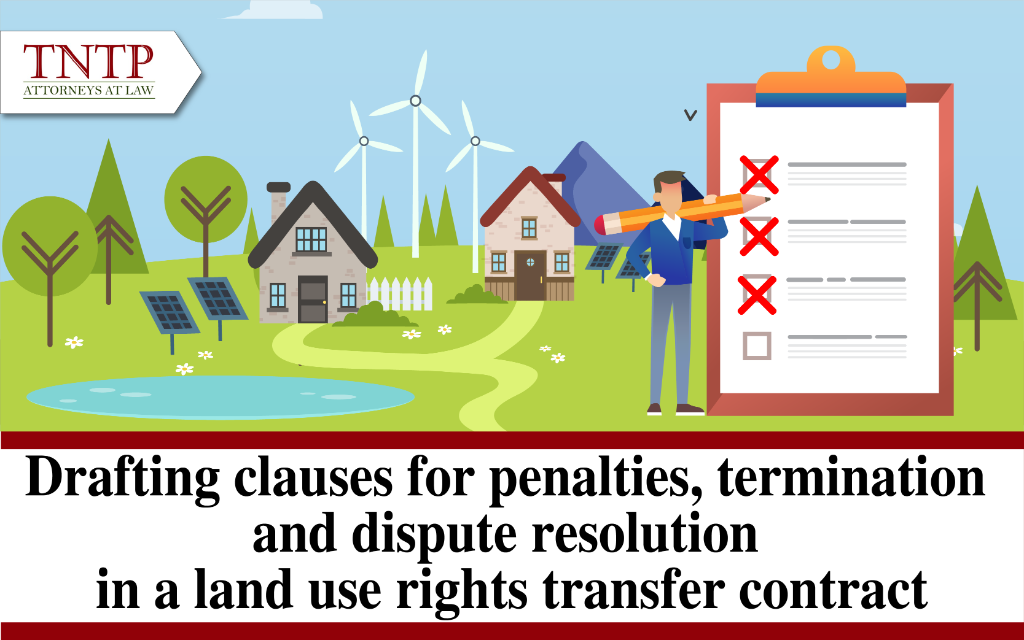During the implementation of the land use rights transfer contract, either party may engage in contract violations such as delayed payment, delayed handover, improper handover, insufficient handover, etc. Anticipating these potential violations and defining the responsibilities of the violating party towards the aggrieved party in such cases is essential. In this article, we will present the fundamental contents that parties can agree upon and regulate in the contract to minimize disputes.
1. Responsibility for contract violations
Both parties can stipulate the forms and procedures for handling violations in the following cases: i) The transferee is delayed in making the payment; ii) The transferor is delayed in handing over the land to the transferee; iii) The deadline for land handover, as notified by the transferee, has arrived, and the land use rights are qualified for handover as agreed in the contract, but the transferor refuses to accept the handover;…
2. Contract termination
Both parties should agree on specific termination cases and the consequences of terminating the contract.
• Termination cases:
+ Naturally occurring termination: When both parties have fulfilled their corresponding obligations.
+ Termination by mutual agreement:
Both parties agree to terminate the contract. In this case, they create a written agreement specifying the conditions and termination period.
+ Unilateral termination of contract performance:
For this provision, both parties need to define the circumstances in which a violation by one party will serve as grounds for the other party to unilaterally terminate the contract. Examples include i) The transferee is delayed in making payment for the transfer; ii) The transferor is delayed in handing over the land; iii) The land use rights have been transferred to another person or fall under the prohibition of transfer according to legal regulations; iv) The transferor provides dishonest information regarding land use rights, etc.
+ Termination in the event of force majeure:
In this regard, both parties can establish provisions regarding If one party is affected by an unforeseeable event that cannot be rectified to continue fulfilling their obligations within … days from the occurrence of the force majeure event, and no other agreement is reached, either party has the right to unilaterally terminate this contract, and such termination will not be considered a contract violation.
• Consequences of contract termination:
When a contract is terminated, the most important aspect is handling the consequences resulting from the termination. Therefore, the parties should meticulously agree upon the consequences that one or both parties must bear when the contract is terminated, depending on the termination case, such as refunding the received transfer payment, and paying interest, penalties, and compensation.
3. Dispute resolution
The parties should agree on specific methods and forms of dispute resolution in case a dispute arises. At the same time, they should choose either a court or arbitration institution to settle the dispute according to legal provisions if they cannot resolve it on their own.
The parties should note that selecting both a court and arbitration institution as dispute resolution bodies is not possible since the dispute can only be resolved in one of these institutions. If the court is chosen as the dispute resolution body, the procedures and process will follow the regulations of the Civil Procedure Code 2015. If arbitration is chosen as the dispute resolution body, the procedures and process will follow the regulations of the Civil Procedure Code 2015, the Law on Commercial Arbitration 2010, and the arbitration rules of the arbitration institution.
The above is the content of the article “Drafting clauses for penalties, termination, and dispute resolution in a land use rights transfer contract” sent to readers by TNTP. If you have any questions or need further clarification, please contact TNTP for the best support.
Best regards,







